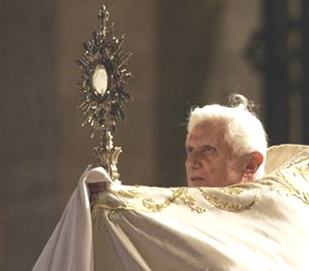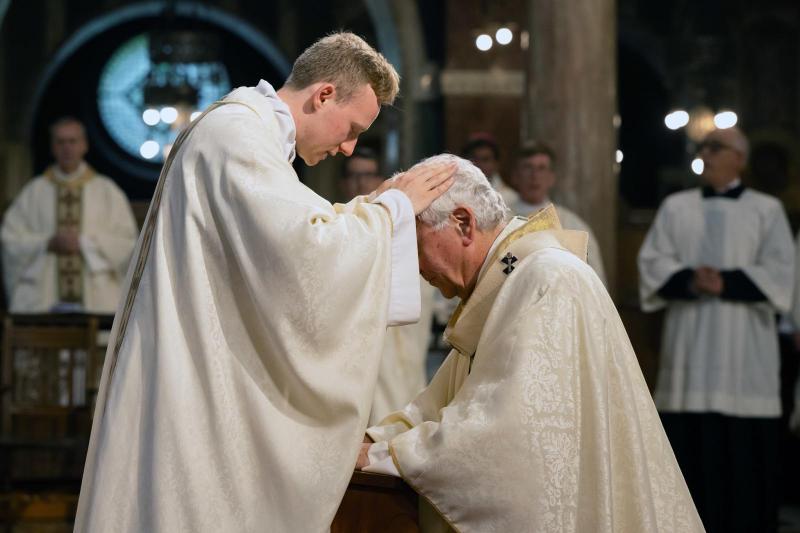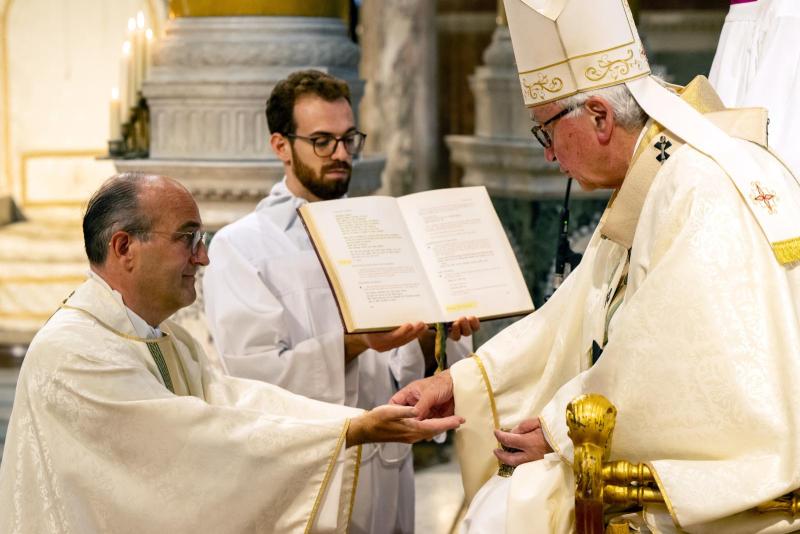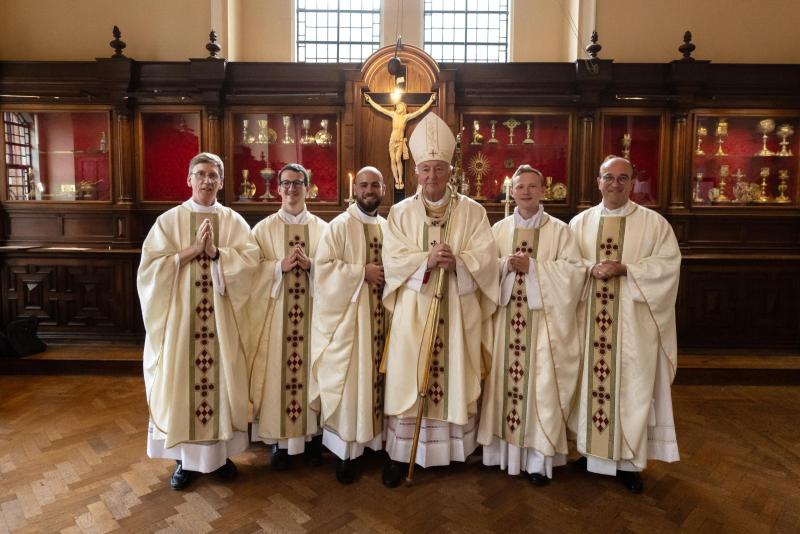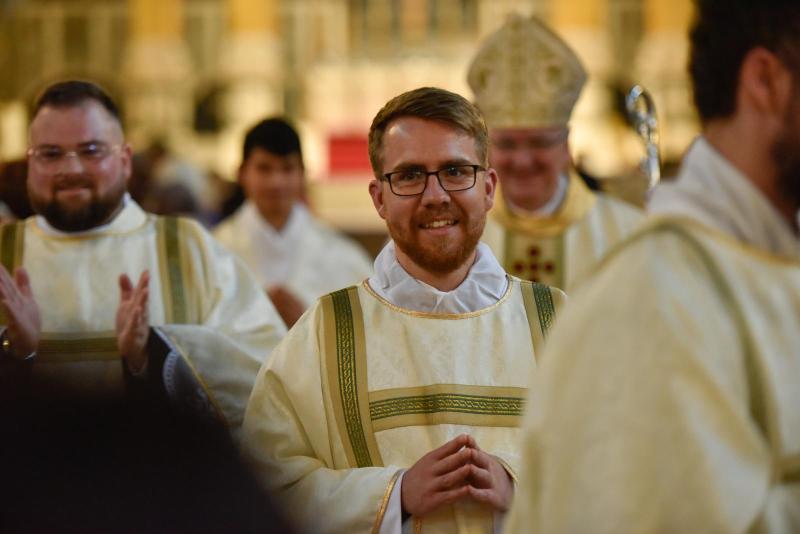1. The “door of faith” (Acts 14:27) is always open for us, ushering us into the life of communion with God and offering entry into his Church. It is possible to cross that threshold when the word of God is proclaimed and the heart allows itself to be shaped by transforming grace. To enter through that door is to set out on a journey that lasts a lifetime. It begins with baptism (cf. Rom 6:4), through which we can address God as Father, and it ends with the passage through death to eternal life, fruit of the resurrection of the Lord Jesus, whose will it was, by the gift of the Holy Spirit, to draw those who believe in him into his own glory (cf. Jn 17:22). To profess faith in the Trinity – Father, Son and Holy Spirit – is to believe in one God who is Love (cf. 1 Jn 4:8): the Father, who in the fullness of time sent his Son for our salvation; Jesus Christ, who in the mystery of his death and resurrection redeemed the world; the Holy Spirit, who leads the Church across the centuries as we await the Lord’s glorious return.
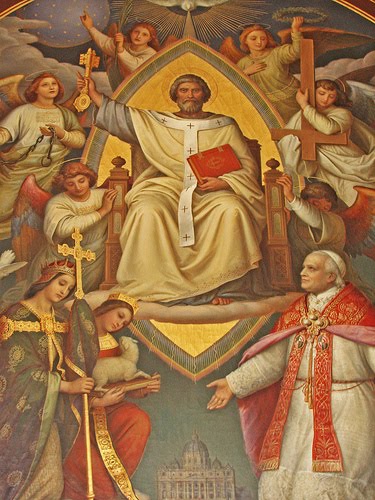 2. Ever since the start of my ministry as Successor of Peter, I have spoken of the need to rediscover the journey of faith so as to shed ever clearer light on the joy and renewed enthusiasm of the encounter with Christ. During the homily at the Mass marking the inauguration of my pontificate I said: “The Church as a whole and all her Pastors, like Christ, must set out to lead people out of the desert, towards the place of life, towards friendship with the Son of God, towards the One who gives us life, and life in abundance.”[1] It often happens that Christians are more concerned for the social, cultural and political consequences of their commitment, continuing to think of the faith as a self-evident presupposition for life in society. In reality, not only can this presupposition no longer be taken for granted, but it is often openly denied.[2] Whereas in the past it was possible to recognize a unitary cultural matrix, broadly accepted in its appeal to the content of the faith and the values inspired by it, today this no longer seems to be the case in large swathes of society, because of a profound crisis of faith that has affected many people.
2. Ever since the start of my ministry as Successor of Peter, I have spoken of the need to rediscover the journey of faith so as to shed ever clearer light on the joy and renewed enthusiasm of the encounter with Christ. During the homily at the Mass marking the inauguration of my pontificate I said: “The Church as a whole and all her Pastors, like Christ, must set out to lead people out of the desert, towards the place of life, towards friendship with the Son of God, towards the One who gives us life, and life in abundance.”[1] It often happens that Christians are more concerned for the social, cultural and political consequences of their commitment, continuing to think of the faith as a self-evident presupposition for life in society. In reality, not only can this presupposition no longer be taken for granted, but it is often openly denied.[2] Whereas in the past it was possible to recognize a unitary cultural matrix, broadly accepted in its appeal to the content of the faith and the values inspired by it, today this no longer seems to be the case in large swathes of society, because of a profound crisis of faith that has affected many people.
3. We cannot accept that salt should become tasteless or the light be kept hidden (cf. Mt 5:13-16). The people of today can still experience the need to go to the well, like the Samaritan woman, in order to hear Jesus, who invites us to believe in him and to draw upon the source of living water welling up within him (cf. Jn 4:14). We must rediscover a taste for feeding ourselves on the word of God, faithfully handed down by the Church, and on the bread of life, offered as sustenance for his disciples (cf. Jn 6:51). Indeed, the teaching of Jesus still resounds in our day with the same power: “Do not labour for the food which perishes, but for the food which endures to eternal life” (Jn 6:27). The question posed by his listeners is the same that we ask today: “What must we do, to be doing the works of God?” (Jn 6:28). We know Jesus’ reply: “This is the work of God, that you believe in him whom he has sent” (Jn 6:29). Belief in Jesus Christ, then, is the way to arrive definitively at salvation.
Click here to read the rest of the Apostolic Letter Porta Fidei
